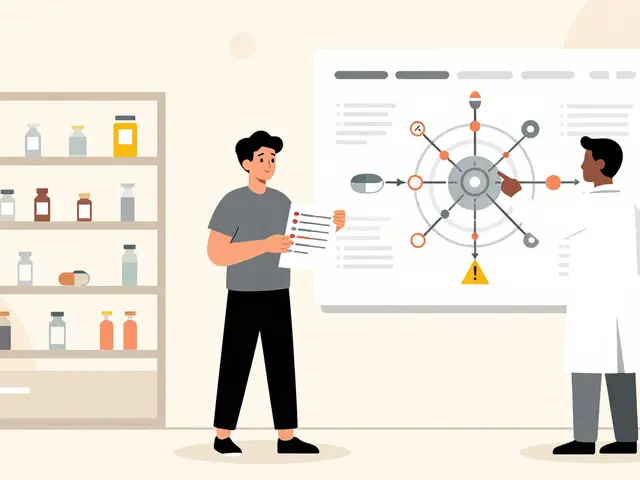ARBs – What They Are and How They Work
If you’ve heard doctors mention "ARBs" and wonder what that means, you’re not alone. ARB stands for Angiotensin Receptor Blocker, a type of pill that helps lower blood pressure by stopping a hormone called angiotensin II from tightening your blood vessels.
Common ARB Medications
Most people recognize losartan, but there are several others you might see on a prescription: valsartan, irbesartan, candesartan, and telmisartan. They all work the same way – blocking the same receptor – so your doctor will pick one based on factors like other health problems, cost, or how well you tolerate it.
These drugs are often the first choice for folks who can’t handle ACE inhibitors because of a cough side effect. If you’ve tried an ACE inhibitor and got that annoying dry cough, ask your doctor if switching to an ARB could help.
How to Take ARBs Safely
Take your ARB exactly as the label says – usually once a day with or without food. Don’t skip doses; missing a pill can cause blood pressure to bounce back up. If you forget, take it as soon as you remember unless it’s almost time for the next dose.
Watch out for low blood pressure, especially when you stand up quickly. You might feel light‑headed or dizzy – that’s called orthostatic hypotension. To avoid it, get up slowly from sitting or lying down and let your body adjust.
Most ARBs are easy on the kidneys, but if you have kidney disease, your doctor will check blood tests regularly. The same goes for potassium levels; some ARBs can raise potassium a bit, so high‑potassium foods may need to be limited.
Side effects are usually mild. The most common ones are headache, fatigue, or a slight increase in blood potassium. Serious reactions like swelling of the face or trouble breathing are rare but require immediate medical help.
When you start an ARB, expect your doctor to check your blood pressure after about two weeks and then again later on. This lets them see if the dose needs adjusting. Never change the dose yourself.
If you’re pregnant or planning to become pregnant, avoid ARBs. They can harm a developing baby. Switch to another hypertension medicine under medical supervision if pregnancy is possible.
Overall, ARBs are reliable, usually well‑tolerated options for managing high blood pressure and protecting your heart. Talk with your healthcare provider about any concerns, keep up with follow‑up appointments, and you’ll be on the right track to better health.
- By Percival Harrington
- /
- 24 Mar 2025
Exploring Losartan Alternatives: Top Choices for 2025
In the world of hypertension treatment, Losartan is a well-known medication. However, with recent advancements, several alternatives offer unique benefits. This article dives into some of these options available in 2025, focusing on their pros and cons. Whether you're seeking fewer side effects or more effective management, there's likely an alternative that fits your needs.



